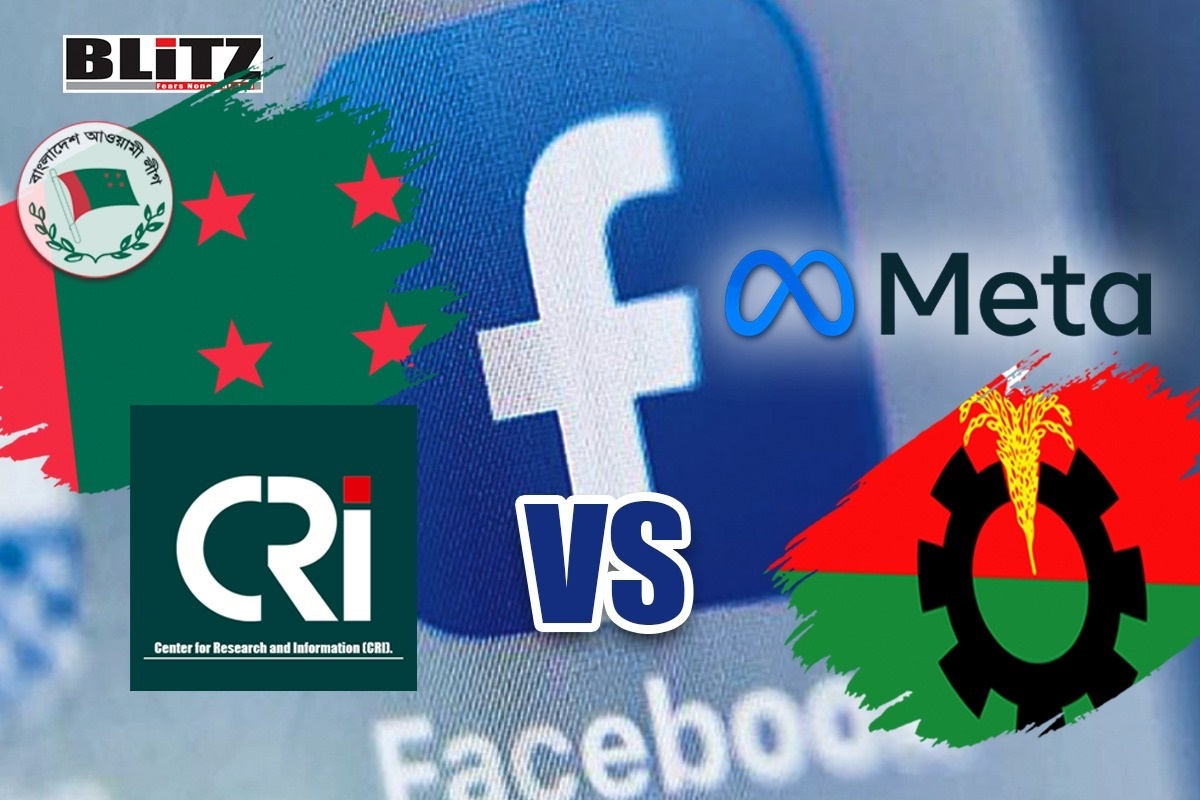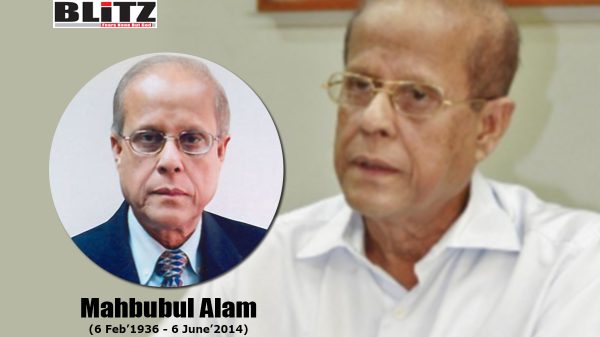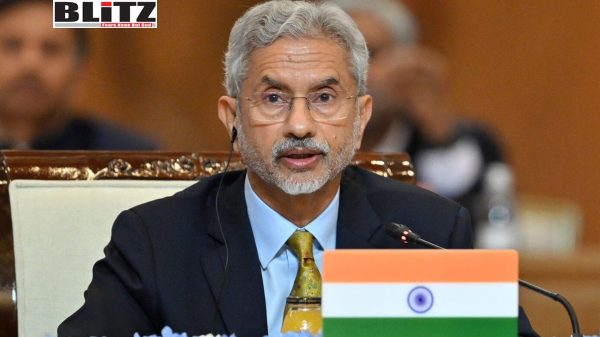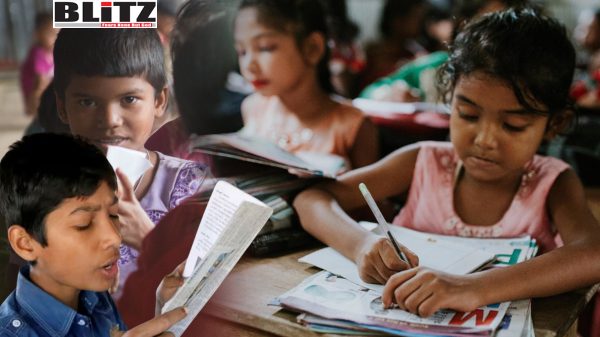Meta sparks political controversy in Bangladesh
- Update Time : Tuesday, June 4, 2024

Bangladesh has recently been embroiled in a digital and political controversy following Meta’s decision to shut down 148 accounts and pages, claiming they were operated by the ruling Awami League’s research organization, the Center for Research and Information (CRI). This move has stirred significant reactions and raised concerns about bias, political manipulation, and the role of social media in shaping public discourse in the country.
Meta’s first-quarter report for 2024 alleged that these accounts and pages engaged in coordinated inauthentic behavior, primarily targeting Bangladeshi citizens. According to Meta, the network utilized fake accounts, some posing as fictitious organizations and others misappropriating the names of established media outlets. This led to the removal of 98 pages and 50 Facebook accounts, all linked to the Awami League.
The decision was met with enthusiasm by the Bangladesh Nationalist Party (BNP) and its supporters, who have long been in opposition to the ruling Awami League. An obscure organization named ‘The Road to Democracy,’ funded by convicted terrorist Tarique Rahman and run by anti-Hindu and anti-India jihadist propagandist Mushfiqul Fazal Ansarey, celebrated Meta’s actions on social media, highlighting the supposed involvement of the Awami League in false propaganda.
State Minister for Information and Broadcasting, M A Arafat, expressed strong disapproval of Meta’s actions, suggesting that certain individuals within Meta were responsible for the shutdown. In an interview with Somoy News, Arafat criticized Meta’s double standards, warning that such bias could lead to Facebook being banned in Bangladesh. He emphasized the need for Meta to address these concerns to avoid further escalation.
CRI, a not-for-profit policy research organization focused on fostering public discussion and youth engagement in Bangladesh, found itself at the center of this controversy. The shutdown of CRI-linked accounts significantly impacts the organization’s efforts to promote informed public discourse and progressive politics in the country.
A key figure in this controversy is Qadaruddin Shishir, an employee of the French news agency AFP, who has been accused of using his position to undermine the Awami League and promote Islamist narratives. Shishir, known for his past affiliations with Jamaat-e-Islami, an ultra-Islamist group in Bangladesh, has been accused of leveraging his role at AFP to propagate anti-Awami League sentiments.
Shishir’s controversial activities include a February 2024 article in The Daily Star, where he allegedly downplayed the BNP’s connections with Al Qaeda and discredited the investigative journalism of the newspaper Blitz, which has extensively reported on BNP’s extremist affiliations. These actions have raised concerns about Shishir’s influence within AFP and the potential impact on international perceptions of Bangladeshi politics.
This controversy is not the first time Facebook has faced allegations of bias and mishandling sensitive issues. In 2020, Facebook was accused of disproportionately suppressing conservative views, which the company denied while promising improvements. More recently, Facebook has faced lawsuits related to child exploitation and addiction, further tarnishing its reputation.
In January 2024, a legal filing revealed that Meta’s platforms were used for child grooming, with internal documents showing minimal efforts to address the issue. Additionally, a complaint from an Apple executive highlighted the dangers faced by children on Facebook, adding to the scrutiny of Meta’s practices.
Speculation about external influences on Meta’s decision has pointed to high-profile figures such as Hillary Clinton. Clinton’s close ties with Nobel laureate Muhammad Yunus, a significant donor to the Clinton Foundation, and Yunus’s vendetta against Prime Minister Sheikh Hasina and the Awami League, have been cited as possible factors. Yunus, known for his controversial microcredit practices and misuse of foreign funds, has been at odds with the Awami League, adding another layer of complexity to the situation.
Yunus’s declaration during the Nobel Peace Prize ceremony in 2006 about eradicating poverty has been overshadowed by allegations of financial mismanagement and high-interest rates charged to poor borrowers. These revelations have raised questions about his integrity and his influence on international platforms.
The Center for Research and Information (CRI) is a pivotal organization in Bangladesh, dedicated to creating a platform for public discussion on national policy issues. CRI aims to engage the youth and democratize debate, promoting progressive politics and policies in a new, digital Bangladesh. The shutdown of CRI-linked accounts by Meta undermines these efforts, posing significant challenges to the organization’s mission.
The implications of Meta’s decision extend beyond CRI, affecting the broader landscape of political discourse in Bangladesh. The ruling Awami League views this as a targeted attack, while opposition forces see it as a validation of their claims against the government. This dichotomy highlights the polarized nature of Bangladeshi politics and the influential role of social media in shaping public opinion.
The fallout from Meta’s decision underscores the need for greater scrutiny of social media platforms and their influence on political processes. The Bangladeshi government’s call for a potential ban on Facebook reflects the seriousness of the issue and the demand for accountability from global tech giants. At the same time, the allegations against individuals like Qadaruddin Shishir highlight the importance of investigating potential biases within influential organizations such as AFP.
The controversy also brings to light the broader issue of digital manipulation and the use of social media platforms for political propaganda. As technology continues to evolve, the need for transparent and accountable practices becomes increasingly critical to maintaining the integrity of democratic processes.
The recent shutdown of CRI-linked accounts by Meta has sparked a complex debate about bias, political influence, and the role of social media in shaping public perceptions. As Bangladesh navigates this controversy, it is crucial for all stakeholders to seek transparency and accountability, ensuring that the digital space remains a platform for genuine and constructive engagement.
The implications of this incident extend beyond national borders, serving as a reminder of the power and responsibility that social media platforms hold in today’s interconnected world. For Bangladesh, this is not just a challenge but an opportunity to reassess its digital policies and ensure that its political discourse remains fair, transparent, and inclusive. The actions taken in response to this controversy will likely set a precedent for how similar issues are handled in the future, both within Bangladesh and globally.















